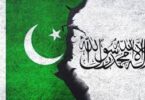The Malaysian Prime Minister Dr. Mahatir Mohammad in his discussion with Prime Minster Imran Khan on expanding bilateral economic cooperation highlighted the broad contours of his government economic policy which led to spectacular economic gains. He said that Malaysia followed the Japanese and South Korean models of economic growth and aptly remarked that government has no business to be in business. Its role should remain confined to providing favorable economic environment for attracting investment. While sharing the secret of Malaysia economic progress, Dr. Mahatir Mohammad told that 20 years tax holiday was given to foreign investors. He said that wealth is not created by the government but the people and investors and rich people pay taxes to the government for liberal spending on education and health.
The growth model of economic development that Malaysian Prime Minister suggested to Pakistani leadership was in practice in Pakistan during the decade of 1960s except tax holiday measures. It was borrowed by South Korea in the shape of the documents of first and second five year plans. The economic growth rate was 8 percent per anum, private sector being the main engine of growth. A nefarious propaganda of concentration of wealth in the hands of 28 families was carried out by the founder of Peoples Party Z.A Bhutto and a bunch of the leftist elements in the party.
After assuming power in the wake 16th December 1971 politically designed tragedy, party leadership implemented the disastrous policy of nationalising private industrial enterprises including the flour mills and rice husking mills and private banks. Five year planning was abandoned as no such plan was formulated during 1972-77. This reckless but deliberate policy of crushing the rising entrepreneurial class to provide total control to feudal class over the power structure in the garb of Islamic Socialism of providing Roti Kapra aur Makan to poor people brought the process of private investment to standstill. The recipe of mixed economy did not work and the economy was pushed into the quagmire of huge losses incurring public sector corporations which now devours Rs.1100 billion taxpayers’ money every year.
PML-N governments pursued the policy of selling out state enterprises and shares of nationalized banks on throwaway price to its crony industrialists and businessmen. During the governments of both PPP and PML-N a culture of massive financial corruption was promoted and made it well entrenched. Taxation regime was made complicated with more than 50 taxes with greater focus on regressive indirect taxes. The shady power sector and LNG agreements of the previous governments proved the proverbial straw on camel’s back. These agreements are so heavily loaded with one sided and tough legally binding clauses that the present government is unable to take the risk of legal remedyfor their revision.That is why petroleum minister Ghulam Sarwar Khan had to say before the visit of the Prime Minister to Qatar that LNG agreement cannot be reviewed. The matter of excessive payments to IPPs is subjudice.
The two countries have signed bilateral trade agreements worth $ 900 million for which export and import products have to be identified. Malaysian market can be accessed for the export of halal meat, rice, citrus fruits, mangoes, apricot, cherry and strawberry. In the envoys conference two months ago, foreign minister Shah Mehmood Qureshi had emphasised the need for comprehensive economic diplomacy which is not taking off because of the non-professional who were posted by the previous government as commercial councilors and trade ministers in Pakistani embassies. Great export potential exists for the export of different food commodities in the markets of South East Asian countries.
A Malaysian automobile company has shown interest to set a car manufacturing plant which will certainly face resistance from the foxy Pakistani cars assemblers’ cartel. In the past the local car assemblers of different brands of Japanese cars managed to block the entry of French automobile company Renault, German Volks Wagon, and South Korean Daewoo and Hyundai. It remains to be seen how the incumbent government succeeds in breaking this vicious circle shady deals to improve the economic environment for domestic and foreign investment.






